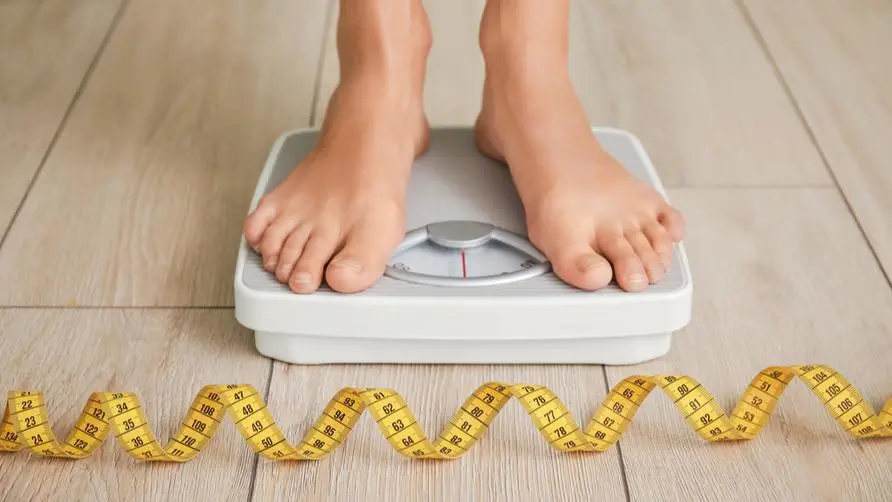Will the body "automatically gain weight" after losing weight? Medical answer: Failure to do "3 things" during weight loss may increase the chance of regaining weight

Many people have a “long-term battle” with their weight numbers. They finally succeed in losing weight, but then fall into the cycle of regaining weight and losing weight again. Dr. An Xinyu from the Department of Family Medicine at Chiayi Christian Hospital pointed out in a social post that whether weight gain will occur after successful weight loss is a common question among almost all weight loss patients.
Will the body “automatically gain weight” after losing weight? Doctors reveal 4 major changes in the body after weight loss
“Unfortunately, once you lose weight, physiological changes throughout your body will tend to gain weight again, bringing you back to your original weight set point!” Dr. An Xinyu explained that the human body will go through a series of physiological changes after losing weight. First, the metabolic rate will decrease significantly after weight loss. For every 10% weight loss, total energy consumption will decrease by about 15%; both resting and non-resting energy consumption will become obvious and continue to decrease.
There was a study that tracked contestants on the American weight loss reality show “Super Weight Loss King” for about 6 years and found that at the end of the 30-week competition, the contestants had lost an average of 58 kilograms and their daily resting metabolic rate was 275 kcal lower than expected. . Six years later, despite gaining an average of 41 kilograms of weight, the difference in daily resting metabolic rate has increased to 499 kcal compared to expected.
Furthermore, hormones that increase “satisfaction” will be significantly reduced after weight loss, including leptin (leptin), satiety hormone (PYY), cholecystokinin (CCK), amylin, etc.; in addition, weight loss Ghrelin (Grelin), which stimulates appetite, will increase after weight loss; finally, reducing caloric intake will inhibit the hypothalamus-pituitary-thyroid axis, resulting in a decrease in active triiodothyronine (T3) and inactive anti-triiodothyronine. The production of orogenic acid (reverse T3) increases, causing the body’s metabolism to decrease.
The above physiological changes are the potential reasons why many people who lose weight feel hungrier after successfully losing weight. Dr. An Xinyu pointed out that past studies have shown that in addition to inducing stronger hunger and desire to eat after losing weight, high-calorie foods may become more attractive.
Is “exercise” the key element to avoid regaining weight? After losing weight, do “3 things” to help maintain your figure
“As for hormone secretion, will it return to normal over time? Some will, but most will not!” Dr. An Xinyu explained that a study found that in the 12th month after losing 13% of the body weight, amylin, gallbladder Contractin, satiety hormone, pancreatic polypeptide, and ghrelin did not return. Even when a person who has lost weight begins to gain weight again, satiety hormones, cholecystokinin, and pancreatic polypeptide have not recovered, and appetite is still higher than before weight loss.
In summary, Dr. An Xinyu said that no matter what weight loss method is adopted, “avoiding weight gain” may be a more difficult challenge than losing weight. If you want to avoid regaining weight, it is recommended to develop a balanced, healthy and long-term diet; and combine it with moderate exercise training. Exercise is not effective for weight loss, but it can be used to prevent obesity. Finally, measuring your weight every day and checking your weight fluctuations will help you understand your own weight gain and further adjust your living habits.
Dr. An Xinyu suggests that if you go to a weight loss clinic regularly, you should follow two major principles: the first is regular follow-up visits, and body composition will still be tracked within 3-6 months after the weight reaches the target; second, The drug is used in low doses or intermittently. People who follow the doctor’s prescription and use medication to lose weight can get early intervention when they start to show signs of regaining weight. In addition, the public should not listen to unsolicited weight loss methods. It is recommended to maintain a healthy weight under the supervision of a metabolic doctor or nutritionist to avoid losing weight and causing harm to the body.
Source: How to prevent obesity - Dr. An Xinyu
Further reading:





